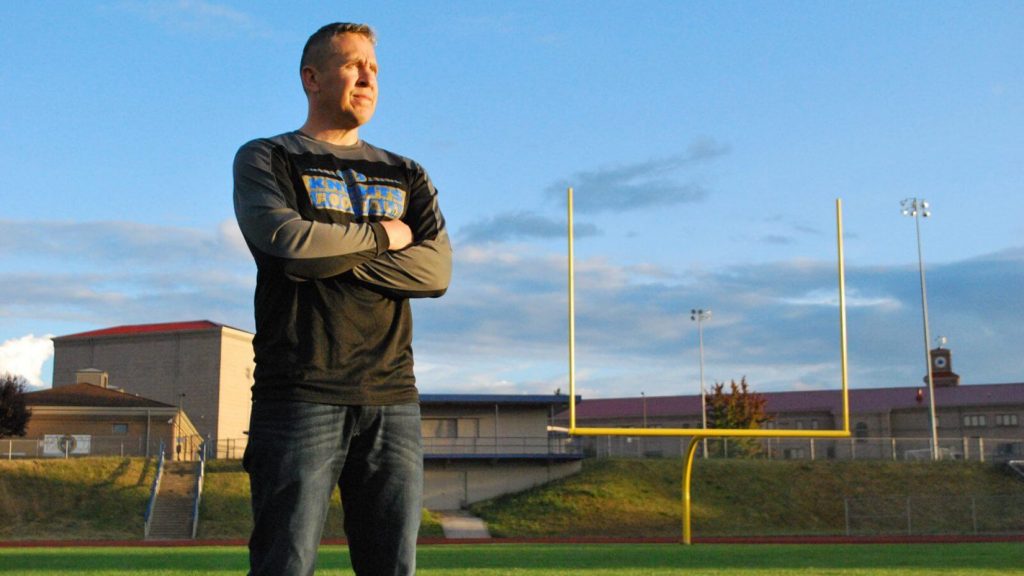The Supreme Court heard oral arguments Monday that lasted nearly two hours in a case concerning a former high school football coach’s right to pray on the field.
Both sides of Kennedy v. Bremerton School District, argue that the case concerns religious freedom — with the ex-coach, Joseph Kennedy, emphasizing his right to religious freedom and his former employer, Bremerton High School, citing students’ religious freedom.
Kennedy, a Christian, lost his job as a public school football coach in Bremerton, Washington, for refusing to stop praying at the 50-yard line after games.
“When Coach Kennedy took a knee at the midfield after games to say a brief prayer of thanks, his expression was entirely his own,” Paul D. Clement, Kennedy's attorney, said during oral arguments. “That private religious expression was doubly protected by the free exercise and free speech clauses.”
Kennedy's case dates back to 2015 when Bremerton High School placed him on administrative leave. The school did not renew his contract for the following season. Kennedy filed suit to vindicate his right “to act in accordance with his sincerely held religious beliefs by offering a brief, private prayer of thanksgiving at the conclusion of BHS football games," according to his brief.
The case centers on two questions: “(1) Whether a public-school employee who says a brief, quiet prayer by himself while at school and visible to students is engaged in government speech that lacks any First Amendment protection; and (2) whether, assuming that such religious expression is private and protected by the free speech and free exercise clauses, the establishment clause nevertheless compels public schools to prohibit it.”
In front of the justices, Richard B. Katskee, a lawyer representing the Bremerton School District, argued that Kennedy’s actions as a coach pressured students to pray.
“No one doubts that public school employees can have quiet prayers by themselves at work even if students can see,” Katskee said during the oral arguments. But Kennedy, he said, “insisted on audible prayers at the 50-yard line with students.”
The Bremerton School District’s brief complains that Kennedy prayed “while on duty” and claims that the practice “could be coercive.” The district maintains that it tried to “accommodate” Kennedy by suggesting, among other things, that he pray in the press box away from the rest of the team. You can watch Kennedy's interview with EWTN News In Depth in the video below.
The court’s conservative majority appeared to favor Kennedy’s arguments.
Justice Samuel Alito saw the case as one of “employment discrimination.”
“And what do we do in an employment discrimination case where the employee says, ‘I was unlawfully fired’?” he asked Katskee. “We look at the employer's reason for the action that was taken. And if the reason that is given is an unlawful reason, then the employee wins.”
Both liberal and conservative justices focused on the school's justification for its treatment of Kennedy, from its claimed concerns about appearing to endorse a religion to the coercion of students to pray.
Pointing to two letters from the Bremerton School District, Clement stressed to Justice Neil Gorsuch that both included eight references to endorsement or endorsing with zero references to coercion, suggesting that the school later shifted its argument.
“Endorsement, coercion, I mean, you're requiring a lot of a school board to try to figure out exactly which box in the Establishment Clause to put this in,” Justice Elena Kagan told Clement at one point.
One of the court’s liberal justices, Justice Stephen Breyer, expressed general skepticism, saying, “this may be a case about facts and not really much about law” because both sides appear to have different views of the facts.
Justices on both sides proposed hypotheticals, beginning with Justice Sonia Sotomayor who described several different scenarios about a teacher who prays, reads the Bible, or texts her husband in the classroom.
She asked of Clement, “If [Kennedy] had all these duties and your employer says to you, 'These are the duties that you have and that's all I want you to do,' why can't it choose to say, 'and the one duty I don't want you to do is to do this one because you are an example to your players?”
Justice Clarence Thomas asked Katskee about another scenario: “If the coach, instead of taking a knee for prayer, took a knee during the National Anthem because of moral opposition to racism, would — how would your school district respond?”
Among other issues, Justice Amy Coney Barrett touched on freedom of speech.
“Who is he communicating to? God? Like, where is the speech?” she asked about Kennedy.
“I think,” Clement responded, “he is communicating to God.”

